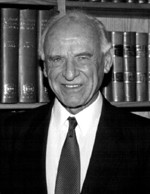Robert Marsden Hope facts for kids
Quick facts for kids
The Hon. Justice
Robert Marsden Hope
|
|
|---|---|
 |
|
| Judge of Appeal of the New South Wales Supreme Court | |
| In office 1972–1989 |
|
| Judge of the New South Wales Supreme Court | |
| In office 1969–1972 |
|
| Royal Commissioner on Australia's Security and Intelligence Agencies | |
| In office 17 May 1983 – 22 May 1985 |
|
| Appointed by | Prime Minister Bob Hawke |
| Royal Commissioner on Intelligence and Security | |
| In office 21 August 1974 – 25 October 1977 |
|
| Appointed by | Prime Minister Gough Whitlam |
| Royal Commissioner into the National Estate | |
| In office 1973–1974 |
|
| Appointed by | Prime Minister Gough Whitlam |
| Personal details | |
| Born | 24 July 1919 |
| Died | 12 October 1999 (aged 80) |
| Nationality | Australian |
| Spouse | June Hope |
| Profession | Barrister and Judge |
Robert Marsden Hope (24 July 1919 – 12 October 1999) was an important Australian Justice and a leader of special investigations called Royal Commissions. He was known for being fair and for his clear way of thinking about the law. He led three major Royal Commissions, including one about Australia's spy agencies.
Contents
Robert Hope's Early Life and Career
Robert Hope studied law at the University of Sydney. After finishing his studies, he became a lawyer in New South Wales in 1945. He was very successful in his legal career.
In 1960, he became a Queen's Counsel, which is a special title for experienced lawyers. Soon after, he was appointed a judge of the New South Wales Supreme Court. This is a very important court in New South Wales. In 1972, he became a Justice of Appeal, which is one of the highest judicial positions in the state. He held this role until he retired in 1989.
Justice Hope was also involved in many other important roles. He was part of the Australian Council for the Arts in 1974. He received high honors, including the Companion of the Order of St Michael and St George (CMG) in 1977 and the Companion of the Order of Australia (AC) in 1989. The Order of Australia is the highest award for civilians in Australia.
He was known for supporting the arts and for protecting people's rights. He served on the Senate of the University of Sydney and later became the first leader, or Chancellor, of the University of Wollongong from 1975 to 1997. He also led the New South Wales Heritage Council and the Law Reform Commission.
His Passing
Robert Hope passed away in 1999 at the age of 80. After he died, the University of Wollongong gave him an honorary law degree. A park in Canberra was named after him in 2002 to recognize his work for the environment. In 2011, a building in Canberra was also renamed the Robert Marsden Hope Building to honor his achievements.
Royal Commissions and Inquiries
Robert Hope led several important Royal Commissions. These are special investigations ordered by the government to look into important public matters.
Protecting Australia's Heritage
In 1973, Prime Minister Gough Whitlam asked Justice Hope to lead the National Estate Committee of Inquiry. This group looked at Australia's cultural heritage, including important buildings and natural places. Their findings helped shape the government's plans to protect these sites, though not all their ideas were put into action.
Looking into Australia's Spy Agencies
In 1974, Prime Minister Whitlam again asked Justice Hope to lead a major investigation, the Royal Commission on Intelligence and Security (RCIS). This commission looked into Australia's intelligence and security agencies, like the Australian Security Intelligence Organisation (ASIO). Hope's recommendations helped make these agencies more trusted and supported by both major political parties.
Later, in 1978, Prime Minister Malcolm Fraser asked Hope to conduct another review. This one, called the Protective Security Review (PSR), looked at how Australia protected itself, especially after a bombing at the Hilton Hotel in Sydney. Hope's work helped improve cooperation between national and state police and security forces. He also made ASIO responsible for assessing threats like terrorism. Many of his ideas from both commissions became law, changing how Australia's security agencies operated.
In 1983, Prime Minister Bob Hawke asked Hope to lead a third Royal Commission on Australia's security agencies. This commission, called RCASIA, made more recommendations to update how these agencies worked. One important recommendation was that the law should clearly state that security agencies should not interfere with people's right to protest peacefully. He also suggested creating an Inspector-General of Intelligence and Security to oversee these agencies and make sure they were accountable. These changes helped ensure that Australia's security agencies respected civil liberties.
Sources
| Academic offices | ||
|---|---|---|
| New title | Chancellor of the University of Wollongong 1975 – 1996 |
Succeeded by Mike Codd |

